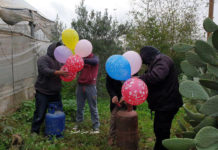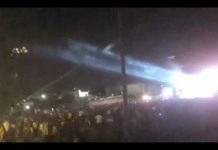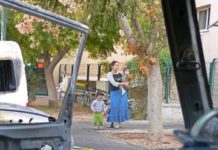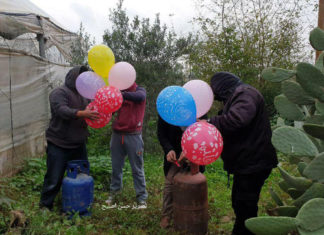In the context of an uncertain new year with the potential resuming of massive rocket attacks, it is quite extraordinary to find a young student who adamantly see his future in the western Negev.
Meet Sam Freidman, 28, who is not the typical Israeli sabra of the western Negev. Sam is first of all an oleh chadash, born in Mexico and raised in the US while spending part of his childhood in Rehovot, Israel. He moved back to Israel two years after finishing his BA in a US university.
“I decided to move to the western Negev as soon as I came here,” says Sam, also known as Sammy. “I wanted to study sound and film for my MA. Sapir college, right outside Sderot, was the only college in the country that combined the two subjects into one major.”
Sammy was not aware of the rocket situation in the western Negev at the time he moved to Israel. “I knew this was the Middle East,” he says. “But somehow I sort of pushed the dangers of living here to the back of my head.”
Sam Freidman, Photo: Meital Ohayon
It didn’t take long for Sammy to realize that Sderot was not the typically peaceful Israeli town. His first Qassam experience occurred on the first night he moved to the western Negev back in December 2006. He and his cousin drove to the city to get a piece of pizza, when all of the sudden, the Tzeva Adom, or Shachar Adom (as the alarm warning residents of an impending rocket attack was called then), sounded throughout the city.
“I felt like I was watching a movie,” says Sammy. “I wasn’t familiar with the sound of the alarm and suddenly I saw all these kids running into the pizza shop. I had no idea what was going on. It was unreal, as if I was watching a movie and yet was in the movie at the same time.”
“Then I heard a boom and heard a girl started crying. Someone yelled “when will it end?!”” continues Sammy. “A kid took a soda bottle and threw it to the ground. Within three minutes, I became fully updated to routine way that Israelis live their life in communities close to the Gaza border.
Sammy has never forgotten that first time. Although he speaks of his rocket experiences with an air of calm and level headedness, he continually emphasizes the importance of safety and acting quickly when the alarm sounds.
“At first I used to be nonchalant whenever the alarm sounded. I used to think if something is meant to happen, then it will. But today I take the Tzeva Adom very seriously,” says Sammy. The Tzeva Adom or Red Alert alarm gives Sderot residents 15 seconds to escape to shelter or to a protected room from the moment the rocket is fired from Gaza and lands in the western Negev.
Close to 400 Israelis have been wounded or injured by exploding Palestinian rockets in the year of 2008. Six Israeli civilians were killed including a father, who was hit by mortar fire three days before the ceasefire went into effect on June 19. Hundreds of homes and businesses have been damaged throughout the year.
But the uncertainty of the future after the ceasefire does not deter Sammy. ” I’ve chosen to live here and I see myself settling in the western Negev for the long run,” he says.











i liked the video i think its very important to hear from peoplo like sammy it make me praoud to be a sderot citizen!!